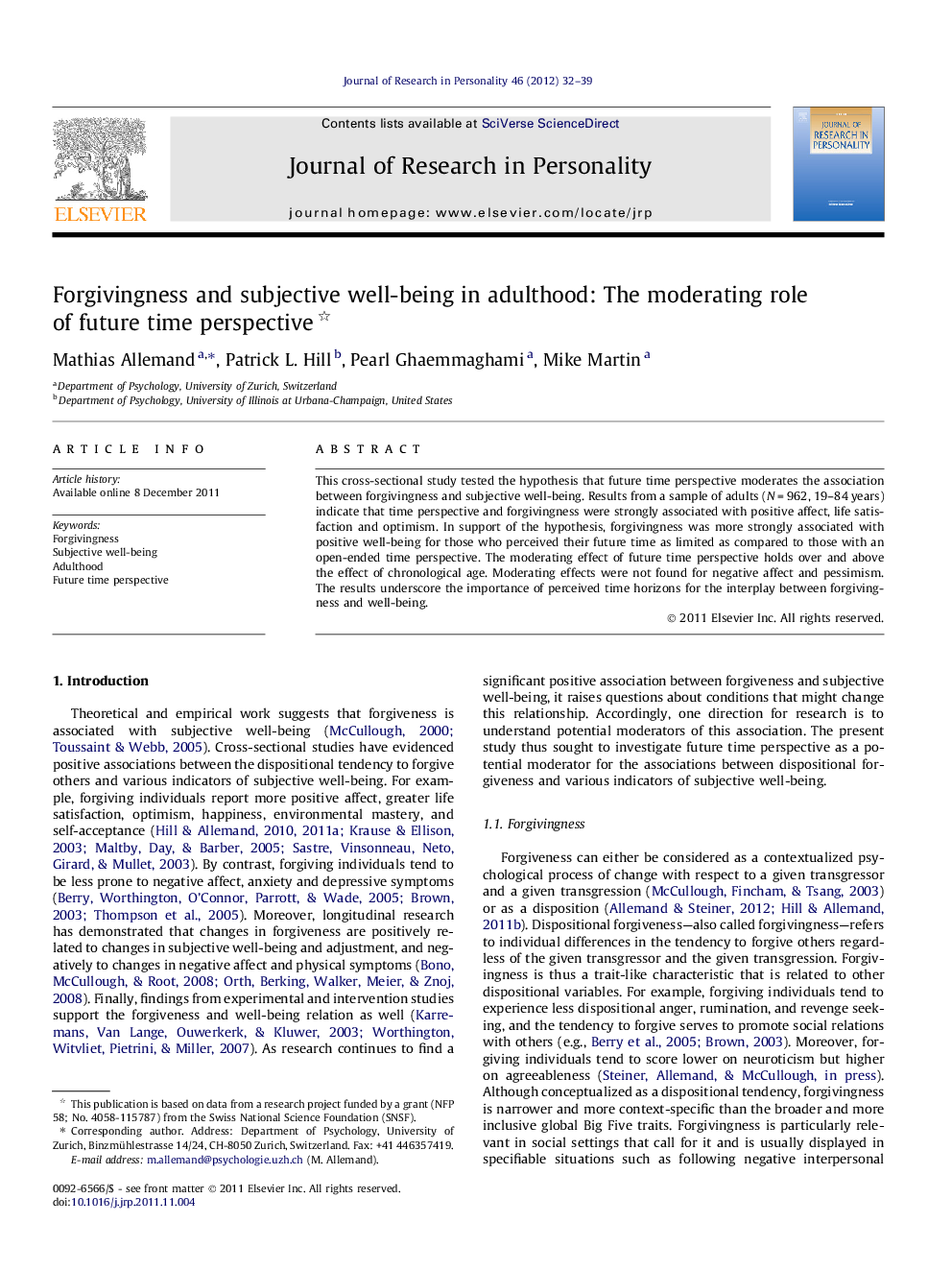| Article ID | Journal | Published Year | Pages | File Type |
|---|---|---|---|---|
| 951587 | Journal of Research in Personality | 2012 | 8 Pages |
This cross-sectional study tested the hypothesis that future time perspective moderates the association between forgivingness and subjective well-being. Results from a sample of adults (N = 962, 19–84 years) indicate that time perspective and forgivingness were strongly associated with positive affect, life satisfaction and optimism. In support of the hypothesis, forgivingness was more strongly associated with positive well-being for those who perceived their future time as limited as compared to those with an open-ended time perspective. The moderating effect of future time perspective holds over and above the effect of chronological age. Moderating effects were not found for negative affect and pessimism. The results underscore the importance of perceived time horizons for the interplay between forgivingness and well-being.
► We examine associations between forgivingness, well-being, and future time perspective (FTP). ► Forgivingness is related to indicators of positive and negative subjective well-being. ► FTP moderates the associations between forgivingness and positive subjective well-being. ► The strength of associations is larger under limited FTP as compared to open-ended FTP. ► FTP does not moderate the associations between forgivingness and negative subjective well-being.
